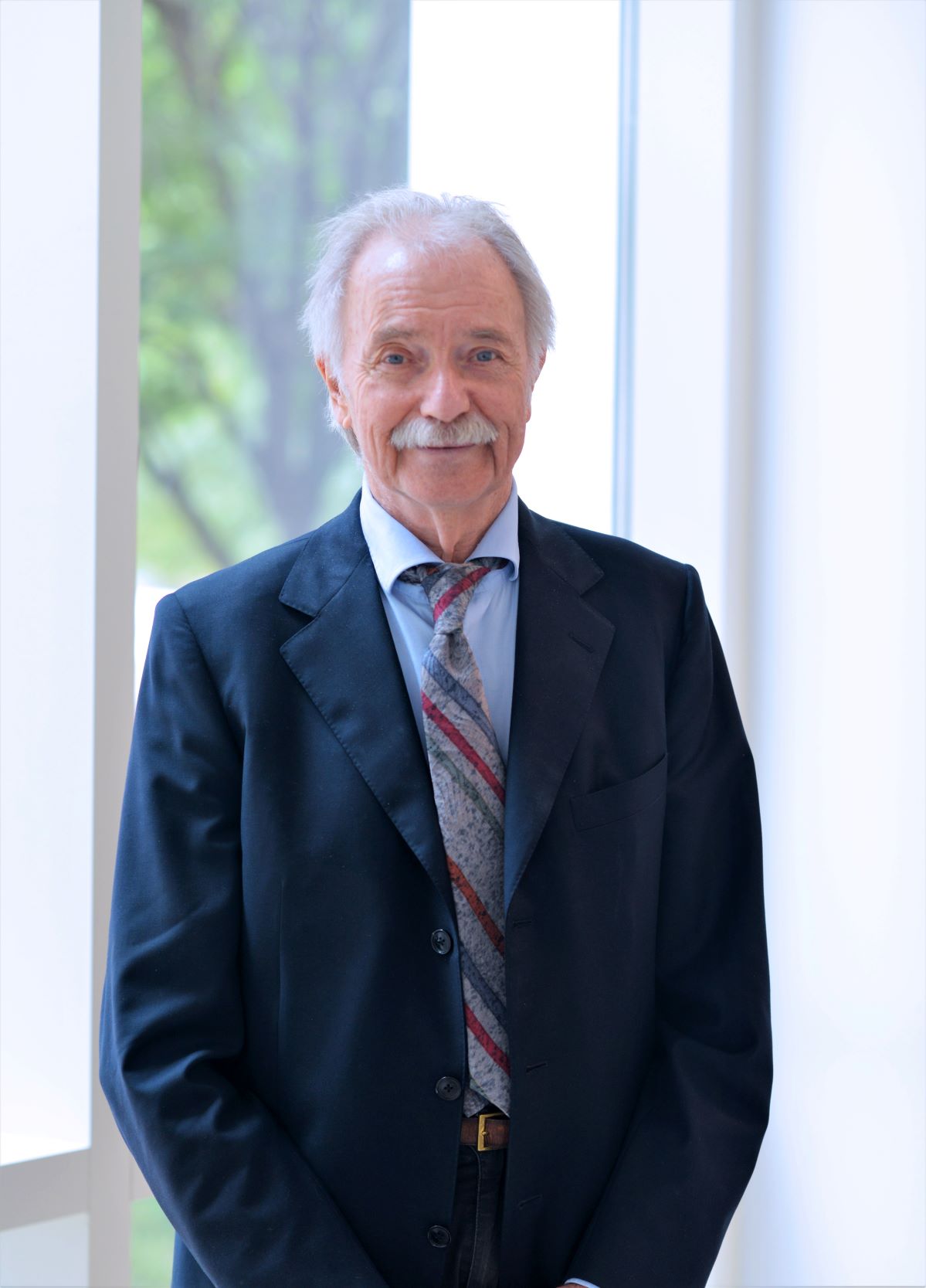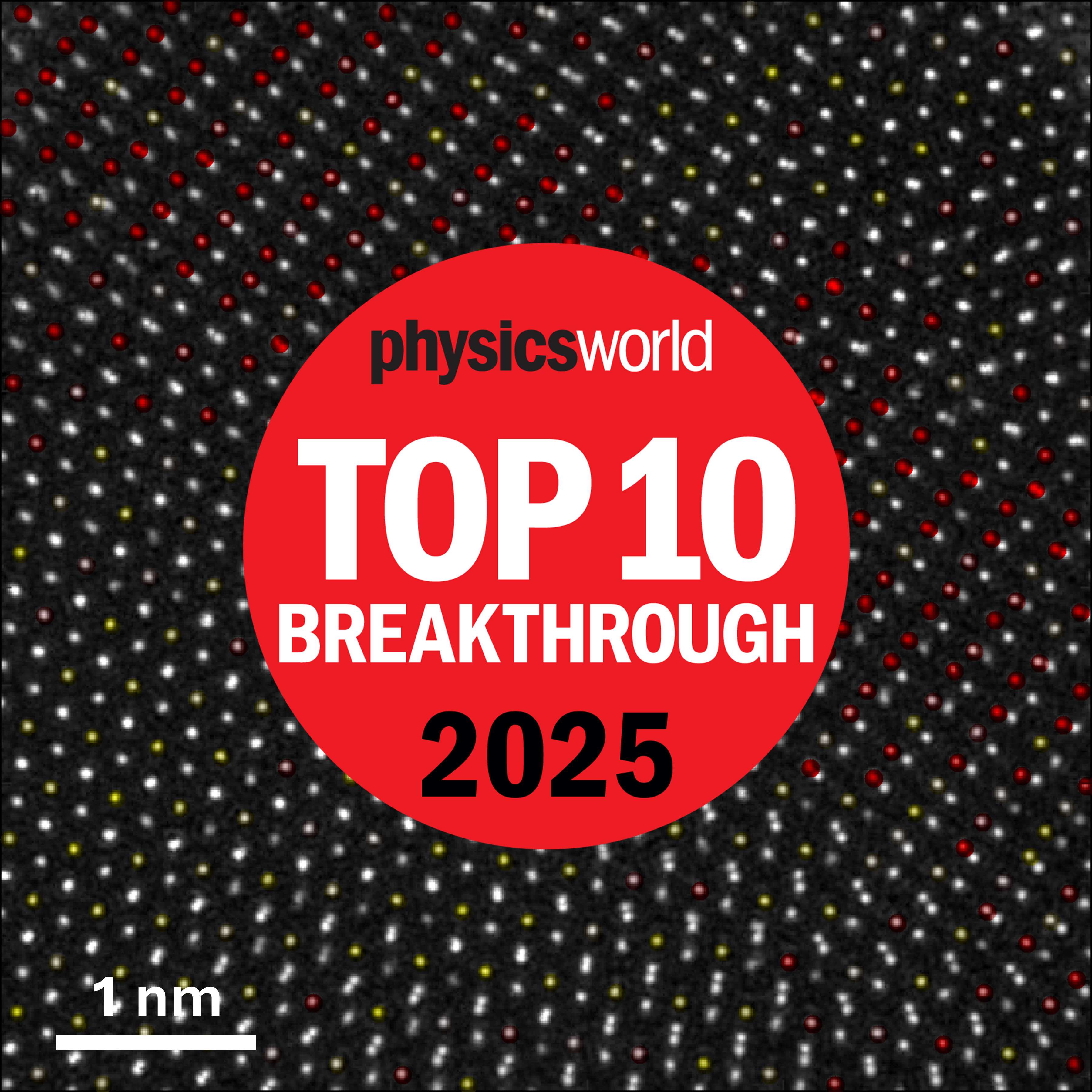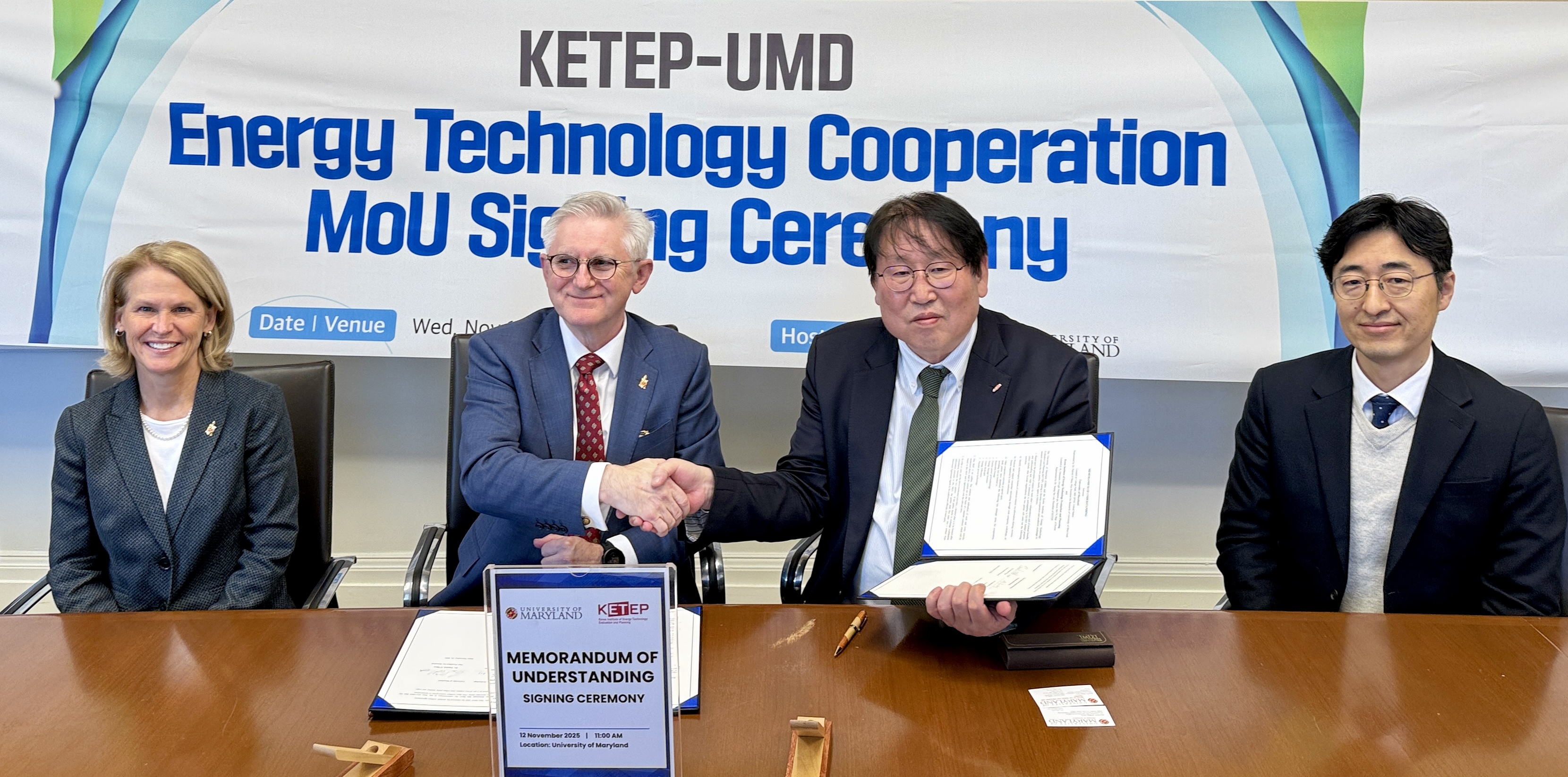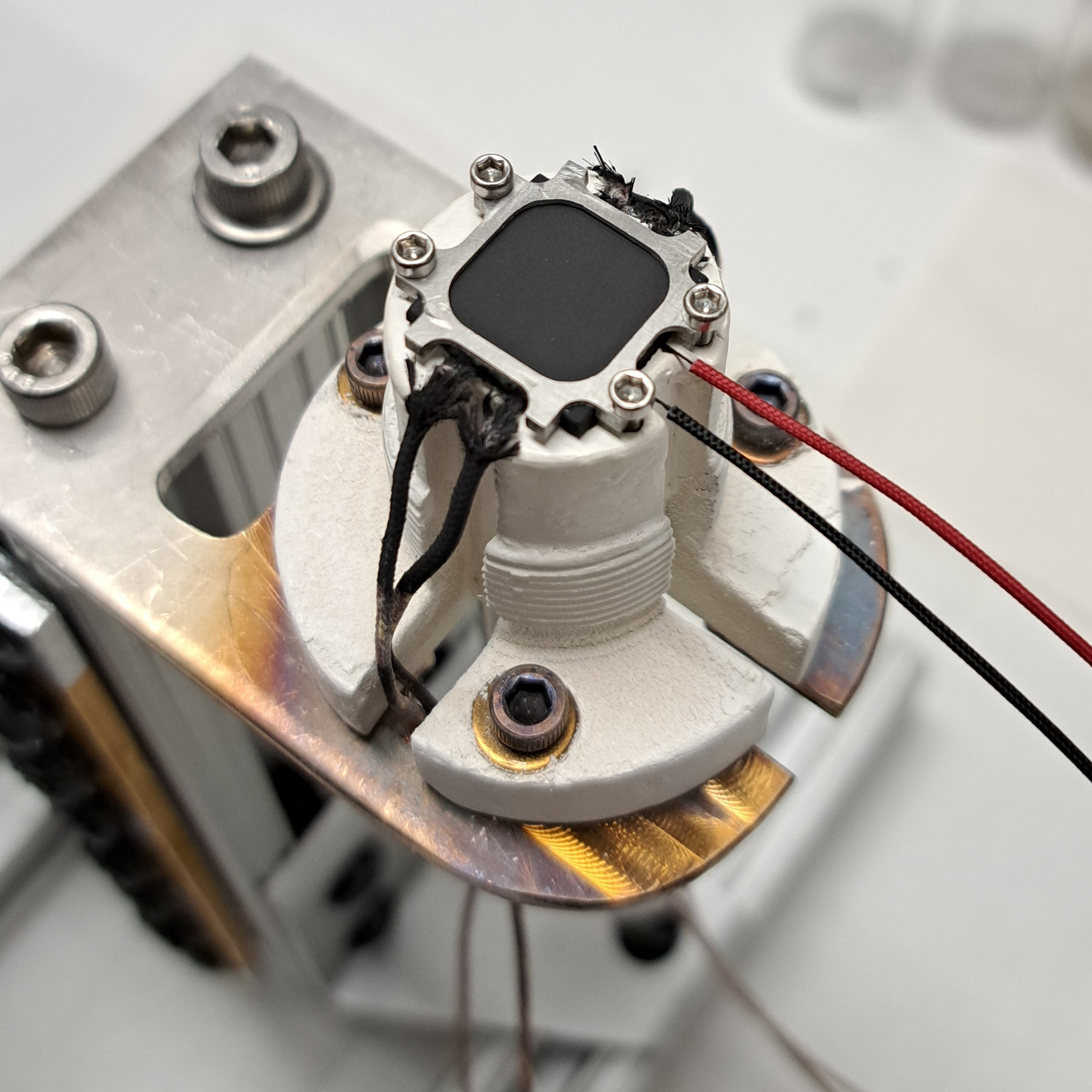News Story
MSE Professor Manfred Wuttig Retires, Transitions to Emeritus Professor

Manfred Wuttig, a professor in the University of Maryland (UMD) Department of Materials Science and Engineering (MSE) officially retired on Friday, July 31.
Wuttig, who received his Ph.D. in 1958 from Technische Universität Berlin, is an internationally recognized expert in the fields of ferromagnetic, ferroelectric and ferroelastic materials, reversible phase transformations, mutiferroics, magnetoelectrics and nanomagnetism.
"Manfred has been an exemplary leader, a constant mentor and a great colleague not just to members of the Department of Materials Science and Engineering, but also to others in the Clark School of Engineering," said Ichiro Takeuchi, MSE Professor. "There are not many researchers who have accomplished as much as he has to define a field of science and engineering."
Before coming to Maryland, Professor Wuttig was a lecturer in physics at the Gauss Ingenieur Schule in Berlin; a professor in the Departments of Metallurgy at the University of Missouri–Rolla and the University of Illinois, respectively; and Director of the National Science Foundation's Metallurgy Program. In 1986, he joined the (then) UMD Department of Chemical and Nuclear Engineering where he was the director of the Graduate Program in Materials Science. In 1992, he became the first acting chair of the (then) Department of Materials and Nuclear Engineering.
Wuttig published one of the first papers in the field ferromagnetic shape memory alloys in 1998 with Richard D. James, entitled, "Magnetostriction of Martensite." This article has been cited over 900 times to date. Many regard this paper to be the one that single-handedly started the field. There is now a large community of materials scientists and physicists working to understand the detailed science of the ferromagnetic shape memory effect as well as how to exploit it for various applications.
In the early 2000s, Wuttig led a large multi-university research initiative (MURI) funded by the Office of Naval Research. It was one of the first major efforts in multiferroics, a new field at the time. A series of groundbreaking work came out of this effort establishing the foundation of the field. One of the publications from this work, "Epitaxial BiFeO3 multiferroic thin film heterostructures," which he co-authored with Ramamoorthy Ramesh, has been cited close to 6,000 times to date.
"Dr. Wuttig is a professor’s professor: a world-renowned scholar that excels at both the creation of new knowledge to advance science and the ability to impart that knowledge to his students,” said Robert Briber, Interim Dean of the Clark School of Engineering and former MSE Chair. “He has served as a visionary steward to the rapidly changing field of materials science over several decades, and is one of the architects of the contemporary field of smart materials."
Wuttig's most recent research projects include the synthesis and characterization of magnetoelectric composites, organic multiferroics for spintronics and the study of alloys with magnetostrictive properties. He has been involved in the development of an all solid-state, elastocaloric cooling technology based on latent heat generated by the martensitic transition of shape memory alloys, for which he and Takeuchi won UMD's Physical Sciences Invention of the Year in 2011. This highly-efficient system could potentially replace vapor-compression based air conditioners and refrigerators, which utilize hydroflourocarbons and hydro flourochlorocarbons, which are harmful to the environment. Wuttig also received the 2013 Senior Faculty Research Award for his contributions to metallurgy and ceramics, and he received the 2020 Pool and Kent Teaching Award for Senior Faculty.
"Even though I have been the UMD MSE Chair for only about a year, I can clearly see what a fantastic job Manfred has done in mentoring generations of scholars in our Department and around the world," said JC Zhao. "He is truly a beacon of scholarship and an exceptional citizen of our Department. We wholeheartedly wish him the very best as an Emeritus Professor."
Published August 18, 2020









